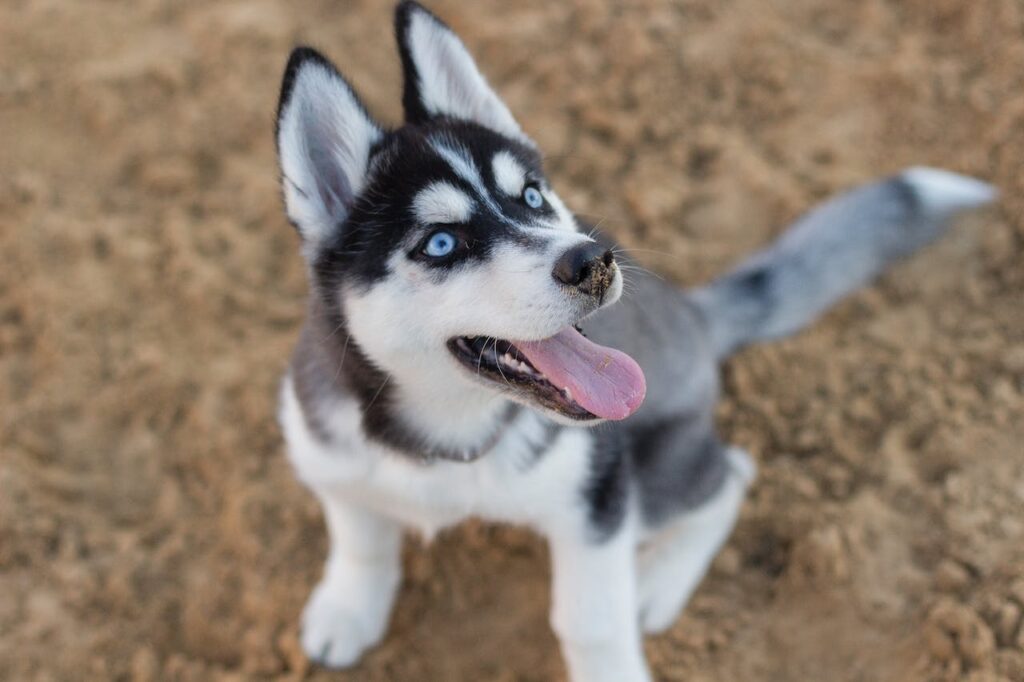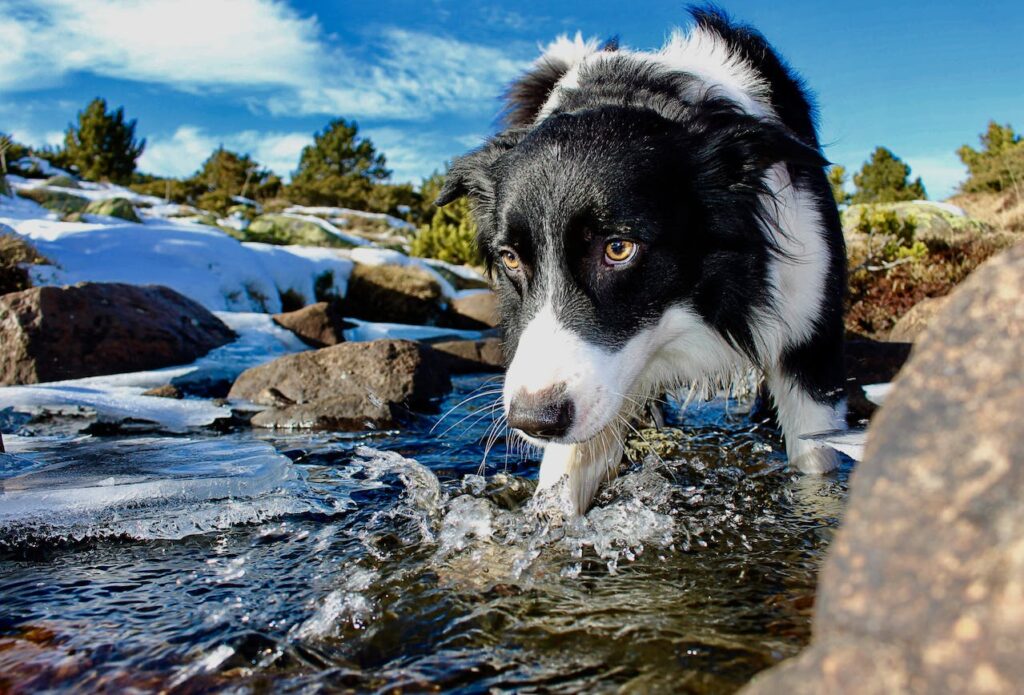Cream cheese is a dairy product made from cow’s milk. It is rich in fat and protein, providing energy for dogs. When considering feeding dogs cream cheese, moderation is key to prevent excess fat intake. Always choose plain varieties without harmful additives and monitor your dog for any adverse reactions.
In this post, we’ll see whether you can feed your dog cream cheese, what are its benefits, harmful effects and most importantly, things to know (facts) about cream cheese. Additionally, we would also take a look at the nutritional value and the proper way to feed dogs cream cheese. Finally, we will answer the most important questions about this topic and share the final verdict.
But, firstly – let’s see, can dogs eat cream cheese?

Table of Contents
ToggleCan Dogs Eat Cream Cheese Safely?
Yes, dogs can eat cream cheese in small amounts. Limit it to occasional treats due to its high fat content. Offer plain, low-fat varieties without additives. Cream cheese provides fat and protein, but overfeeding may lead to weight issues. Monitor for lactose intolerance and avoid options with harmful ingredients like onion or garlic.
Benefits of Feeding Your Dog Cream Cheese
Here are 3 benefits of cream cheese for dogs:
- Palatability: Dogs may find the taste of cream cheese appealing, making it a useful ingredient to encourage them to consume medications or other necessary pills.
- Protein and Calcium: Cream cheese contains protein and calcium, which are essential nutrients for dogs. However, it should only be a small part of their diet.
- Weight Gain: For underweight dogs or those in need of additional calories, cream cheese can be a calorie-dense option when used in moderation.
Harmful Effects of Feeding Your Dog Cream Cheese (4 Harms)
Cream cheese, when fed to dogs in excess, can have the following 4 harmful effects:
- Digestive Upset: Excessive consumption may lead to stomach upset, diarrhea, or vomiting due to the high-fat content.
- Obesity: The high-fat and calorie content in cream cheese can contribute to weight gain and obesity in dogs.
- Pancreatitis Risk: Fatty foods like cream cheese may increase the risk of pancreatitis, a painful inflammation of the pancreas.
- Lactose Intolerance: Some dogs are lactose intolerant, and dairy products like cream cheese can cause gastrointestinal issues.
Things to Know About (Facts) about Cream Cheese
In this section, we will discuss some facts and things to know about cream cheese.
| Attribute | Description |
| Type | Creamy dairy product |
| Composition | Made from cream and milk |
| Texture | Smooth and spreadable |
| Flavor | Mild, slightly tangy |
| Fat Content | High fat content |
| Calories per Serving | Varies based on brand and type |
| Lactose Content | Contains lactose, but less than regular cheese |
| Common Uses | Spreads, dips, desserts, and culinary applications |
| Nutritional Value | Contains protein, calcium, fat, and other nutrients |
| Storage | Refrigerate for freshness, discard if moldy or off-smelling |
Nutritional Value of Cream Cheese
In this section, we will discuss the nutritional value of cream cheese.
| Nutrient | Value per 100 g | Unit |
| Calories | 342 | Kcal |
| Protein | 6.16 | g |
| Total Fat | 34.88 | g |
| Saturated Fat | 21.092 | g |
| Monounsaturated Fat | 9.961 | g |
| Polyunsaturated Fat | 1.324 | g |
| Cholesterol | 105 | mg |
| Carbohydrates | 2.67 | g |
| Sugars | 2.67 | g |
| Dietary Fiber | 0 | g |
| Calcium | 76 | mg |
| Iron | 0.02 | mg |
| Sodium | 629 | mg |
| Potassium | 98 | mg |
| Vitamin A | 984 | IU |
| Vitamin C | 0 | mg |
How to Feed Dogs Cream Cheese?
Here is a 3-step guide on how to feed your dog cream cheese:
- Portion Control: Offer cream cheese as an occasional treat. Limit servings to small amounts.
- Preparation: Use plain, unsweetened cream cheese. Avoid flavored varieties with additives.
- Feeding Method: Serve cream cheese as an occasional topping or mix-in.
Things to Take Care of (Precautions) Before Feeding Your Dog Cream Cheese:
Here are some precautions you must take before you feed your dog cream cheese:
- Lactose Intolerance: Check for lactose intolerance symptoms.
- Fat Content: Monitor fat intake to prevent obesity.
- Additives: Avoid cream cheese with harmful additives.

Can Dogs Eat Alternative Forms of Cream Cheese?
In this section, we will discuss if dogs can eat alternative forms of cream cheese such as whipped cream cheese, flavored cream cheese, and more.
Can Dogs Eat Whipped Cream Cheese?
Yes, dogs can eat whipped cream cheese. Offer in moderation as a treat or mix-in. Avoid excessive quantities due to high fat content.
Can Dogs Eat Low-Fat Cream Cheese?
Yes, dogs can eat low-fat cream cheese. Serve in small amounts as an occasional treat. Monitor fat intake for weight management.
Can Dogs Eat Flavored Cream Cheese?
It depends. Flavored cream cheeses may contain additives. Check ingredients; opt for plain varieties if offered. Limit flavored types to prevent potential harm.
Can Dogs Eat Cheese Dip?
No, dogs should avoid cheese dip. It contains ingredients like spices, garlic, and onion, which are harmful to dogs. Consumption may lead to digestive issues and toxicity. Opt for plain cheese in moderation as a safer alternative.
Can Dogs Eat Cheese Puffs?
No, dogs should not eat cheese puffs. They are high in salt, fat, and artificial additives, harmful to dogs. Ingesting cheese puffs can lead to digestive issues and obesity. Offer dog-safe treats instead for a healthier option.
Can Dogs Eat Cottage Cheese?
Yes, dogs can eat cottage cheese in moderation. Offer plain, low-fat cottage cheese. Ensure it’s free from additives, garlic, or onion, which can be harmful. Cottage cheese provides protein and calcium for dogs. Introduce it gradually, watching for any signs of allergies or digestive issues.
Can Dogs Eat Philadelphia Cream Cheese?
Yes, dogs can eat Philadelphia cream cheese in moderation. It should be plain and without any added flavors or ingredients. Introduce it gradually to ensure your dog tolerates it well. Consider your dog’s overall diet and calorie intake. Avoid varieties with added ingredients like garlic or onion, as they can be harmful to dogs.
Can Dogs Eat Strawberry Cream Cheese?
Yes, dogs can eat strawberry cream cheese in moderation. Ensure it doesn’t contain harmful ingredients like xylitol, which is toxic to dogs. Offer small amounts as a treat and monitor for any adverse reactions. Maintain a balanced and nutritious diet for your dog, and treats should only complement their main meals.
Can Dogs Eat Vegan Cheese?
Yes, dogs can eat some types of vegan cheese in moderation. Dogs can eat certain vegan cheeses, but it’s important to check ingredients. Avoid varieties with ingredients harmful to dogs, such as garlic or onion. Introduce in small amounts and monitor for any adverse reactions. Ensure the vegan cheese doesn’t contain xylitol, a substance toxic to dogs. Consult your vet if you have concerns or specific dietary considerations for your dog.
What Other Dairy Products can a Dog Eat?
Here is a list of 5 other dairy products that your dog can eat:
- Cottage cheese
- Plain yogurt
- Hard cheese (e.g., cheddar)
- Mozzarella cheese
- Ricotta cheese
Frequently Asked Questions (FAQs)
In this section, we will discuss some frequently asked questions regarding cream cheese and feeding it to dogs.
What distinguishes cream cheese from other dairy products?
Cream cheese is a soft, mild-tasting cheese with a higher moisture content than most hard cheeses. It’s made from a blend of milk and cream, resulting in a spreadable consistency.
Is low-fat cream cheese a safer option for dogs?
Yes, opting for low-fat or reduced-fat cream cheese can be a better choice for dogs, as it helps manage their fat intake.
How does cream cheese compare to yogurt in terms of dog consumption?
While both can be given in moderation, yogurt is often a healthier option due to its probiotic benefits. It’s important to choose plain, unsweetened yogurt.
What are potential signs of lactose intolerance in dogs?
3 symptoms may include:
- Diarrhea
- Gas
- Stomach discomfort
If you suspect lactose intolerance, consider lactose-free options like lactose-free cream cheese or other suitable alternatives.
Conclusion
In conclusion, while dogs can eat cream cheese in moderation, it’s crucial to be mindful of lactose intolerance. Opt for plain, low-fat varieties and monitor for any adverse reactions. Always consult your veterinarian for personalized dietary advice for your pooch.



